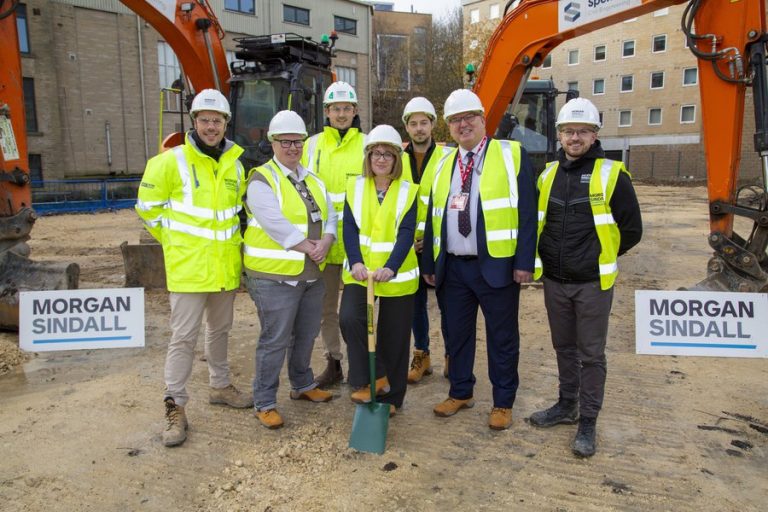“I am proud of the teams across the country, for their hard work in accelerating this activity in recent months to prevent exploitation and ensure those who break the law face consequences.”
Government intensifies clampdown on illegal working
KCOM shares almost £20,000 between three charities
Firms step up to support Christmas dinners through FareShare
100,000 Christmas dinners will be donated as part of the King’s Coronation Food Project and distributed by FareShare to families in need over the festive period.
M&S will donate 240,000 portions of vegetables across its Christmas lines, ensuring everyone can enjoy two servings of vegetables with their meal.
In addition, 100,000 servings of turkey crowns have been donated by Bernard Matthews, and 1,800 pots of Bisto Turkey gravy granules will be provided by Premier Foods. Families will also receive a Matthew Walker Christmas Pudding, a brand owned by Valeo Foods Group, completing the full Christmas dinner experience.
FareShare will distribute these to local charities across the UK, including community centres, homelessness charities, lunch clubs and youth centres. More than three quarters of charities FareShare provides food to support children and families. This donation will help those who might otherwise be unable to celebrate this festive season.
Ranjit Singh Boparan, Founder and President of 2 Sisters Food Group, which operates a factory in Scunthorpe, said: “We are delighted to be involved in this festive donation with FareShare to provide 100,000 Christmas meals for those that need it most at this time of year. “We are very proud to be part of this powerful alliance between Marks & Spencer, Bernard Matthews, Valeo Foods Group and Premier Foods which brings together retailers, manufacturers and suppliers to make this possible. “I appreciate the support that Valeo Foods and Premier Foods have given in donating the Christmas puddings and gravy granules. I made just one call to the CEO’s and they stepped forward with these generous donations. Without the support of M&S, Valeo Foods, Premier Foods and 2SFG, none of this would be possible. The flexibility the teams have shown and their generosity in giving up their own time has made all this possible, and I applaud everyone for their efforts.”Siemens adds £5,000 more to its support for Goole’s Two Rivers Community pantry
Grass Roots Foundation receives largest-ever donation in time for Christmas
Yorkshire rhubarb and cheese get special status in Japan
“The UK is home to a feast of flavours from every corner of the British Isles. With the new agreement between the UK and Japan, consumers will now be able to chew over their choices with confidence, knowing they’re getting the quality and reputation that British food is known for – it’s the perfect recipe for success.”
Scunthorpe refractory company reaches knowledge transfer deal
Construction starts on £17m Future Technologies Centre
A symbolic groundbreaking ceremony has marked a major step forward in the construction of Bradford College’s purpose-built £17m Future Technologies Centre.
Members of the Bradford College management team were joined by representatives from Morgan Sindall Construction and the Department for Education to celebrate construction commencing on site.
The project received £15 million from the Department for Education Further Education Capital Transformation Fund (FECTF) in October 2022, boosted by a £2 million College contribution.
The important milestone signifies the start of phase two of the project. Having previously undertaken extensive site surveys and the demolition of a derelict mill on Thornton Road in the city, Morgan Sindall is now undertaking the construction of a state-of-the-art four-storey building which will house modern automotive, digital, and engineering training at Bradford College.
The facility will offer students skills in new technologies, such as modern automotive and digital engineering, electric/hybrid vehicles and advanced manufacturing. The Centre will be vital in supporting the growth of technology and low-carbon skills capability within West Yorkshire.
Once completed in 2026, the Bradford College Automotive and Digital Engineering Department will relocate from Bowling Back Lane to the new premises. As many as 650 students could enrol at the Centre.
Commenting at the ceremony, Sarah Towan (Bradford College Vice Principal – Recruitment & Communications) said: “We are delighted to be breaking ground on this exciting new development for Bradford College. Engineering and motor vehicle skills development are high on the agenda for our local employers and regional economy.
“This cutting-edge facility will provide a highly skilled workforce for the careers of the future, so today marks an important moment for everyone involved in the project.”
Ben Hall, Area Director for Morgan Sindall Construction’s Yorkshire business, added: “We’re thrilled to deliver what will be a game-changing new facility for Bradford.
“As part of our delivery of this project, we look forward to undertaking social value initiatives that benefit the people of Bradford, ensuring this new facility has a positive impact on the city way ahead of opening.”
Significant letting secured at One Leeds City Office Park
Hallam Land sells 600 residential plots in the Midlands
Tim Roberts, CEO at Henry Boot, said: “This latest sale of a significant parcel of consented residential land means that Hallam Land is firmly on track to meet its target for land sales in this financial year. I am also pleased to note that under the new Government there has already been a welcome and much-needed improvement in the planning system. We expect this to provide a strong tailwind to Henry Boot’s ambition to accelerate the volume of plots submitted for approval from our well located land bank next year.”












